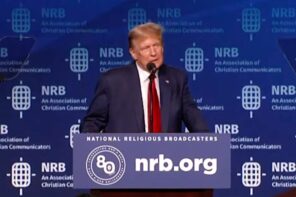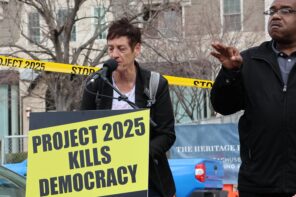Nigeria is arguably the most important country in Africa. With 175 million people, it’s certainly the most populous. And Nigeria has the biggest GDP on the continent, largely due to its oil reserves.
In terms of religion, the northern half of the country is mostly Muslim, the southern half mostly Christian (with many Nigerians following traditional beliefs).
Relations between Muslims and Christians have largely been cordial with occasional tensions arising from the sharing of political power. But that was before the rise of Boko Haram.
What Is Boko Haram?
Often known as “Nigeria’s Taliban,” Boko Haram (roughly translated from the Hausa language as “Western education is sinful”) officially calls itself the Congregation of the People for Proselytism and Jihad. As you might infer, Boko Haram is against Westernization—to the point where its members argue that the world is flat—and seeks to impose its radical version of sharia law throughout Nigeria.
Founded in 2002, Boko Haram started as a Salafist organization mostly dedicated to strict Islamic education. But in 2009, it became openly violent—members bombed churches, attacked military installations and police stations, killed tourists and Muslims who disagreed with their tactics.
It does not have historic ties with Al Qaeda but in recent years has employed Al Qaeda-type tactics, using improvised explosive devices, car bombs, and assassination to sow terror in Nigeria. The group has gunned down churchgoers, attacked mosques and set off bombs across the country. Last month it bombed a bus stop in the capital, Abuja, killing 71 people.
A bloody government crackdown managed to keep Boko Haram quiescent until 2012, when the attacks began again. In May of 2013, President Goodluck Jonathan declared a state of emergency in 3 northern states. (You can find a more detailed discussion of the historical context here.)
It is estimated that, since its founding in 2002, Boko Haram has killed 10,000 people and displaced 100,000.
The Abductions
On April 14, members of Boko Haram invaded a boarding school in Nigeria, pulled 276 girls from their beds and packed them into trucks. At least 53 girls have escaped. According to the girls’ relatives, the rest are being sold as brides to local militants for as little as $12.
The State Department’s annual report on global terrorism, released last week, found that Boko Haram “receives the bulk of its funding from bank robberies and related criminal activities, including extortion and kidnapping for ransoms.”
In a recent video, Abubakar Shekau, a man claiming to be the leader of Boko Haram, took credit for the kidnapping. He said that he is selling the girls as wives to prevent them from receiving a Western education.
“I abducted your girls. I will sell them in the market, by Allah,” Shekau said, according to a CNN translation. “There is a market for selling humans. Allah says I should sell. He commands me to sell. I will sell women.”
It is not an empty threat. Earlier this year, in Yobe state, 16 girls were abducted and married off. There have been numerous reports of rape, and escapees have related being used as “baby factories.”
The Nigerian government claims to be handling the situation, but weeks after the kidnapping, Nigerian officials appear to be no closer to finding the missing girls. The government’s perceived ineptitude has inspired international protests and the globally trending Twitter hashtag #BringBackOurGirls with U.S Representative John Conyers of Michigan and actor Jenny McCarthy amongst several thousand tweeting.
The New York Times reported that 11 more girls were abducted from another school on May 6, prompting the U.S. government to send a team of experts to Nigeria, including hostage negotiators, psychologists and military personnel. The government of Nigeria has accepted the offer, but it’s still unclear specifically how the two countries will cooperate.
What can Americans do?
Americans can help keep the matter on the front burner by emailing their Representatives to ensure that the offer to help the Nigerian government is not an empty promise. Nigerians, however, do not want the United States to play Super Cop and are wary, since many of America’s more high-profile interventions have become centers of conflict.
Recently a new group has been formed to help girls from the region get their lives back, but it is not yet registered. In the meantime, Americans can donate to Stepping Stones Nigeria, a British charity that supports education, literacy and human rights for Nigerian children.




